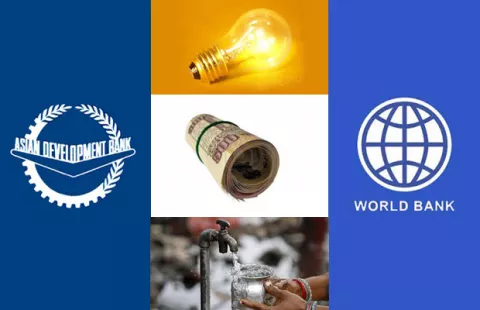
The Indian government has announced Rs 48,000 crore for the transformation of smart cities, clearly it is not enough. Taking into account the huge resource requirement for Smart Cities Mission and AMRUT, the Urban Development (UD) Ministry is pursuing multi-level approaches for financing the Smart Cities Mission, tapping into potential external sources as well as creating internal revenues sources to mitigate risks.
The ministry recently unveiled the roadmap for financing smart cities at a workshop organised in New Delhi for 40 cities. UD minister M Venkaiah Naidu has proposed to link user charges in urban areas to inflation and quality of services to raise financing for the 'Smart Cities' Mission.
He said that if you can assure quality urban services, people will be more than happy to cooperate. The ministry stressed that these user charges are aimed to increase cost recovery and should be structured to at least cover operation and maintenance charges, using automatic partial indexing of user charges in urban areas.
Based on this concept, the ministry is developing a Model Concession Agreement in urban water supply depending on tariff indexation to inflation. For example, if a special water project is taken up for supplying 24-hour supply in the proposed 'Smart City' then some charges would be collected to cover costs of operation and maintenance.
The model document also covers risk allocation between public and private sectors, performance standards and coverage targets besides providing for flexibility to urban local bodies.
Citing an example on variable recoveries in some the services provided by civic bodies, the UD ministry has pointed out that user charges were way below cost recovery in urban areas. In case of water, it is below 20 per cent; below 60 per cent in case of power and less than 80 per cent for gas. In case of larger cities, it is as low as 18.20 per cent in Lucknow as against a high of 55.20 per cent in Palakkad.
Another important revenue source identified by UD ministry was parking fees. It stated that currently parking rates are low in cities, and increasing parking fees will support smart cities goal by influencing commuting choices in favour of public transport.
It was suggested that where services can be measured and beneficiaries identified, user charges must be applied. Water and sewerage charges should be levied separately rather than built into property tax, as is done by some states.
During the presentation on sources of financing the Smart Cities Mission, the UD Ministry has informed the states that the government part from the planned internal funding is also pursuing a loan of $ 1 billion from Asian Development Bank and another $ 500 million from the World Bank to provide funds to the Special Purpose Vehicles to be created for each smart city chosen in the second stage of City Challenge competition.
Also read:
Rs 192 cr alloted for 96 Smart Cities
Govt announces 98 cities under 'Smart Cities' Mission



